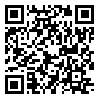Thu, Feb 19, 2026
[Archive]
Volume 9, Issue 1 (4-2025)
CRMS 2025, 9(1): 70-86 |
Back to browse issues page
Download citation:
BibTeX | RIS | EndNote | Medlars | ProCite | Reference Manager | RefWorks
Send citation to:



BibTeX | RIS | EndNote | Medlars | ProCite | Reference Manager | RefWorks
Send citation to:
Nameni M, Omidvar S, Kordbagheri M. The role of medication adherence in the association between health literacy and diabetes self-care among reproductive-aged women with diabetes mellitus: A Structural Equation Model. CRMS 2025; 9 (1) :70-86
URL: http://crms.mubabol.ac.ir/article-1-208-en.html
URL: http://crms.mubabol.ac.ir/article-1-208-en.html
Social Determinants of Health Research Center, Health Research Institute, Babol University of Medical Sciences, Babol, I.R. Iran. , shomidvar@yahoo.com
Abstract: (595 Views)
Background: The increasing global burden of diabetes, especially in developing nations, highlights the imperative to know more about medication adherence and self-care practices among reproductive-age women with diabetes. The objective of this research was to assess the interrelations between health literacy, medication adherence, and diabetes self-care among reproductive-age women with diabetes
Methods: In this cross-sectional study, 214 diabetic women (30.29 ± 6.52 years old) visited a diabetes clinic in Tehran, Iran (December 2022–March 2023). Convenience sampling was conducted, and the participants responded to questionnaires on demographics, diabetes self-care (DSCA), health literacy (HELIA), and medication adherence (MMAS-8). Structural equation modeling (SPSS26/AMOS24) examined variable relationships (significance: p < 0.05).
Results: Adherence to medication was low (83.7%), with no demographic correlations of note. Health literacy was positively related to adherence (r = 0.389, p < 0.001) and self-care (r = 0.315, p < 0.001). Adherence to medication mediated the relationship between health literacy and self-care (β = 0.447, p < 0.001). Health literacy was directly related to better adherence (β = 0.401, p < 0.001) and self-care (β = 0.331, p < 0.001).
Conclusion: Poor adherence to medication continues to exist among women of reproductive age with diabetes. Health literacy improves adherence and self-care, with adherence acting as a mediator. Interventions aimed at health literacy could potentially enhance diabetes care in this group.
Methods: In this cross-sectional study, 214 diabetic women (30.29 ± 6.52 years old) visited a diabetes clinic in Tehran, Iran (December 2022–March 2023). Convenience sampling was conducted, and the participants responded to questionnaires on demographics, diabetes self-care (DSCA), health literacy (HELIA), and medication adherence (MMAS-8). Structural equation modeling (SPSS26/AMOS24) examined variable relationships (significance: p < 0.05).
Results: Adherence to medication was low (83.7%), with no demographic correlations of note. Health literacy was positively related to adherence (r = 0.389, p < 0.001) and self-care (r = 0.315, p < 0.001). Adherence to medication mediated the relationship between health literacy and self-care (β = 0.447, p < 0.001). Health literacy was directly related to better adherence (β = 0.401, p < 0.001) and self-care (β = 0.331, p < 0.001).
Conclusion: Poor adherence to medication continues to exist among women of reproductive age with diabetes. Health literacy improves adherence and self-care, with adherence acting as a mediator. Interventions aimed at health literacy could potentially enhance diabetes care in this group.
Type of Study: Original Article |
Subject:
پزشکی اجتماعی
Received: 2025/06/18 | Accepted: 2025/09/2 | Published: 2025/09/21
Received: 2025/06/18 | Accepted: 2025/09/2 | Published: 2025/09/21
Send email to the article author
| Rights and permissions | |
 |
This work is licensed under a Creative Commons Attribution-NonCommercial 4.0 International License. |




